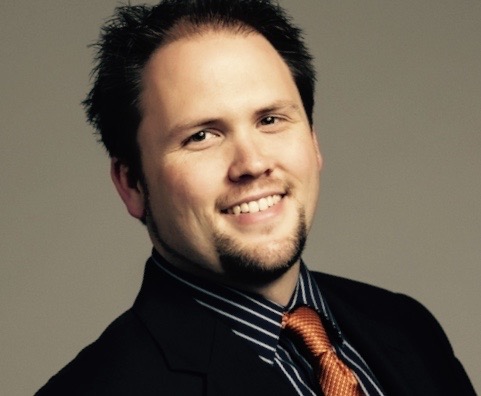by Mike Telin

On Sunday, February 18 at 8:00 pm in Oberlin Conservatory’s Warner Concert Hall, musicians from soundSCAPE — soprano Tony Arnold, percussionist Aiyun Huang, violinist Mark Fewer, flutist Lisa Cella, and pianist Thomas Rosenkranz — will present a free concert of music by composers who have long supported the work of the Festival. The program will include Ricardo Zohn-Muldoon’s Flores del Viento III, Christopher Adler’s 010 machine states, Chris Paul Harman’s Partita for Solo Violin, and Carlos Sanchez-Gutierrez’ Kikai no Mori and Chance Forest Interludes.
The evening will also include the U.S. premiere of Jesse Jones’ After the End, with a text by South Carolina-based poet Jonathan Brent Butler. Surprisingly, Jones said he has never met the poet. “I taught at the University of South Carolina and I’m in a duo with a guy from there. He knew that I was looking for a text, and when I read the poem I fell in love with it — it’s about nature and rejuvenating.”
After the end of the world, the world begins. The birds go about their business. The bright needle of the sparrow’s song stitches together the morning. When they redraw the maps, let them remember to indicate the place, not how far the damage spread, how deep it cut, but where it ended, where it began again.
The work is scored for piano, vibraphone, and voice, and Jones said he was thrilled to be asked to write a piece for Tony Arnold. “Writing vocal music is one of my main loves — it’s one of the easiest ways to connect on a human level. And to be able to write a song for Tony, who’s one of the best sopranos in the world in my opinion, and can hit any note with the most glorious, beautiful tone and with pitch accuracy — who would say no to that?”
The composer admitted that it took him a while to know what type of piece to write. “When I was composer-in-residence at soundSCAPE, I wrote a jokey piece with a nonsense text. It was virtuosic with a lot of florid arpeggios and big leaps. This is more serious, so I don’t know if I gave them what they were expecting, but I do think they like it.”
What are the challenges of writing a piece for a vocalist like Arnold, who can do anything? “I wanted to be careful not to tax her,” Jones said. “The assumption is that she can hit any pitch, and she’s really good at super high notes that are piercingly pure. So the pressure that I felt a little bit was, if I have her up there all the time, will I wear her out? But she didn’t complain.”
Jones noted that he uses the text very slowly to be sure that all the words will be understood. He added that he treats the vibraphone as a type of wind instrument. “The pedal vibrates the air column and makes this water-like, air-like sound that is reminiscent of nature. And the piano acts as the bird. It’s not that literal — you’re not going to hear a birdsong — but I think those things are conducive to the feeling of the poem.”
Although the composer said that he usually avoids making political statements in his music, After the End explicitly states how he feels about the current health of the planet. “There’s so much damage being done, and this poem captures some of the sadness and melancholy that I feel. But at the same time it is hopeful about rejuvenation. That’s why I wrote a piece that is not full of leaping virtuosity.”
What led to Jones being invited as composer-in-residence at soundSCAPE? “I think through some common friends. Ricardo Zohn-Muldoon, who also has a piece on the program, teaches at Eastman, and when I was at Cornell I played mandolin on a piece of his. He knew about me and called me up to ask if I would do it. I was very happy to because I had lived in Italy for a while when I was on the Rome Prize — one of the best years of my life. The Festival is in a beautiful location and they do a great job of being in the community and bringing the people to concerts of new music. It’s also a wonderful experience for young Americans to go there and experience the Italian culture — great food and nice people.”
Published on ClevelandClassical.com February 13, 2018.
Click here for a printable copy of this article



